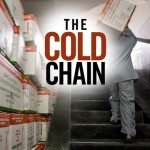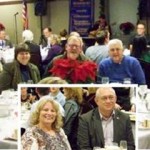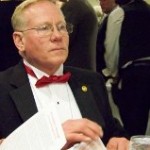 Mark Van Heel of MVP Mechanical gave his vocational speech to the Rogers Rotary Club. Mark is a new member and “is excited to be a part of Rotary”. Welcome Mark!
Mark Van Heel of MVP Mechanical gave his vocational speech to the Rogers Rotary Club. Mark is a new member and “is excited to be a part of Rotary”. Welcome Mark!
Year: 2011
Rogers revelry at the Maple Grove gala
The season’s first snowfall didn’t keep these Rogers Rotarians home! Seated at the club-sponsored table (from left: Gaylene Olson and husband Dave Felleson, Floye and Delores Ingersoll, LaDaun and Bruce Johnson, and (inset) Pam and Dave Nei. Not pictured are Carmine and Charlene Ribaudo.
See the world on a District Friendship Exchange
Friendship Exchange encourages Rotary Friendships by staying in the homes of Rotarians abroad.
District 5950 is now on the international registry of Districts organized to host reciprocal Friendship Exchanges.
The Friendship Exchange Committee seeks to raise awareness for international travel, improve accessibility for 5950 Rotarians to travel while striving to be a communications vehicle tracking 5950 international activity.
In 2010, Mark and Corrine Lewis of the Eden Prairie AM Club will lead 12 participants to the Morninton Pennisula of Melbourne, Australia as part of the inaugural District 5950 Friendship Exchange. Planning for a 2013 trip to India is underway.
Former STRIVE student sends letter
Ben McEachern shares a letter of thanks from a former STRIVE Student.
I’m now a Senior at St. Cloud State University. I am double majoring in Political Science and Communication Studies. I joined the sorority Kappa Phi Omega my freshman year, along with Student Government. I am now the Student Government President for this academic year. I am Pre-Law and I already have a job at a Law Firm for next year. I will take a year off between my baccalaureate degree and Law School to work at the firm and study for my LSAT. I plan to go to either the University of Minnesota Law or Notre Dame Law.
I would also like to add that STRIVE gave me that extra kick of ambition my Senior year of High School to really work hard for the future I want. I have to say that Kick of ambition launched me into a frenzy, and I guess you can say that I haven’t really slowed down. For that, I thank you for what you and the Rotary Club so.
I hope it works for me to speak to the Rotary Club on January 5th.
Thanks,
Sam
Thank you Malmborg’s Garden Center
We love early mornings, breakfast and Poinsettias and we love Malmborgs because we get all three. Thank you Malmborgs for the terrific shared meeting with Rotary Clubs of Maple Grove and Brooklyn Center.
Quit Plan and Clear Way MN comes to Rotary
 We welcome Quit Plan and Clear Way of Minnesota, educating our club on the hazards of the big tobaccos marketing gimmicks. They presented some products they came cleverly disguised to look like mints and candy. It was incredible.
We welcome Quit Plan and Clear Way of Minnesota, educating our club on the hazards of the big tobaccos marketing gimmicks. They presented some products they came cleverly disguised to look like mints and candy. It was incredible.
Quit Plan also has a free professional service available to any MN company with 8 or more employees who want to quit tobacco for good. For more information about Quite Plan or Clear Way Minnesota please click on the two links below and start your smoke free future now.
About QUITPLAN® Services
Launched by ClearWay MinnesotaSM in 2001, QUITPLAN Services is a free, professional counseling service that has helped over 17,000 Minnesotans successfully quit tobacco. The program is funded by a portion of the Minnesota Tobacco Settlement. Support is available to anyone who lives or works in Minnesota.
About ClearWay MinnesotaSM
ClearWay Minnesota is an independent, nonprofit organization that improves the health of all Minnesotans by reducing tobacco use and exposure to secondhand smoke through research, action and collaboration. We are an independent nonprofit funded by three percent of the settlement Minnesota received from the tobacco companies in 1998.
We use our portion of the settlement to help Minnesotans quit smoking and tobacco use, and to fund research, public policy and community development projects about the state. We work to raise people’s awareness of the dangers of tobacco use, and to make Minnesota a healthier place. For more information on ClearWay Minnesota, visit clearwaymn.org.
Vaccines reach remote locations through the cold chain
……..article from RI
 When Rotary launched PolioPlus in 1985, the “plus” signaled the belief that the polio eradication effort would increase immunizations against five other diseases prevalent in children: measles, tuberculosis, diphtheria, whooping cough, and tetanus. As time went on, the list of benefits grew.
When Rotary launched PolioPlus in 1985, the “plus” signaled the belief that the polio eradication effort would increase immunizations against five other diseases prevalent in children: measles, tuberculosis, diphtheria, whooping cough, and tetanus. As time went on, the list of benefits grew.
Polio immunization campaigns created an avenue for other lifesaving health
interventions, such as the distribution of vitamin A supplements. New equipment for transporting and storing vaccines made it easier to combat infectious diseases in developing areas.
The enormous network of laboratories and health clinics charged with identifying new cases of polio began to monitor the spread of other viruses as well. And the Global Polio Eradication Initiative, which Rotary helped create, rose to international prominence as a model for public-private partnerships to address world health issues.
The “plus” in PolioPlus means that Rotarians are doing more than stopping the spread of polio in the last four countries in which it is endemic; they also are building a legacy of infrastructure and partnerships that will support the fight against infectious disease long after polio is gone.
——————– The cold chain ————————-
Transporting vaccines to developing areas is no easy task. From the time they leave the manufacturer until they reach recipients, vaccines must be kept between 2 and 8 degrees Celsius (though some may be frozen at -15 to -25 degrees). Variances of even a few degrees could spoil an entire shipment, leaving children without the protection they need.
The “cold chain” created to distribute polio vaccine has been used to transport other vaccines, such as measles, tetanus, and diphtheria. An estimated one-third of the cold chain capacity in sub-Saharan Africa was implemented to support polio eradication.
Read more in Global Outlook .
John Gleason wins HP Tablet at Rotary Pancake Breakfast
Marco Verweg of Mettle Computer Solutions, LLC presents Grand Prize Winner of the Pancake Breakfast Drawing, John Gleason with the HP Tablet.
Small loans make a big difference
-Article by Rotary International News
Sometimes dubbed the “Forgotten Avenue of Service”, vocational service can be difficult for clubs to understand and implement.

The Rotary Club of Alexandria Sporting, Egypt, rose to the challenge by focusing on micro credit loans, literacy classes, and a sewing workshop to meet the needs of low income community members, helping owmen in particular to start businesses and learn useful work skills.
“We gave loans to deprived women supporting large families, says past club president Heba Kabel. Clubs made 20 loans of about $85 each to female entrepreneurs to launch small food or cleaning businesses. The loans were paid back in installments over the course of a year, and the money was then loaned out again – turning the club’s initial investment of about $1,700 into a sustainable micro credit program.
The club also financed literacy classes, helping 75 women learn to read and write, and a sewing lab, which drew 45 woman to sewing lessons every month.
Kabel notes that the club put a priority on efforts that would help community members increase their chances of finding a job. “We made a big bazaar at the end of the year and sold their products,” Kabel says, explaining that the proceeds went to the women.
Kable, a Barclays Bank employee, also tapped into her own vocational skills by offering free lessons in financial literacy to several women whom club members had met through the vocational service initiatives. The financial advice helped the women make informed decisions about their new incomes, teaching them to allocate some for savings and giving them a better chance of sustaining their small businesses.
To learn more about micro lending through Rotary International, check out the Facts of the Matter on the web.
Diane Tran & Cassidy Gardenier guest speakers for Wed. Nov 2
—– Cheri Ashfeld
Come hear Diane Tran and Cassidy Gardenier speak on Clean Energy at our regular meeting Sleep In & Suites in Rogers, MN at 7am. The clean energy race is on. The investment and finance data presented the Pew Clean Energy Program’s report, Who’s Winning the Clean Energy Race, shows that countries are jockeying for a leadership position in this growing and increasingly competitive sector. Countries with clear, consistent and constructive clean energy policies are powering investment forward.
Wednesday’s presentation will examine key financial, investment and technological trends related to clean energy in the world’s leading economies, the Group of Twenty (G-20). Presenters will discuss the continued growth and dynamism of clean energy investment in these economies and follow recent Pew research shoeing that policy priority for clean energy is well-placed; investment in clean power assets alone could reach $2.3 trillion over the 2010-20 period. Countries that succeed in attracting investment can realize the economic, security and environmental benefits of the global race to harness clean, renewable energy sources.






![1320089557807[2]](http://rogersrotary.com/wp-content/uploads/2011/11/13200895578072-150x150.jpg)
